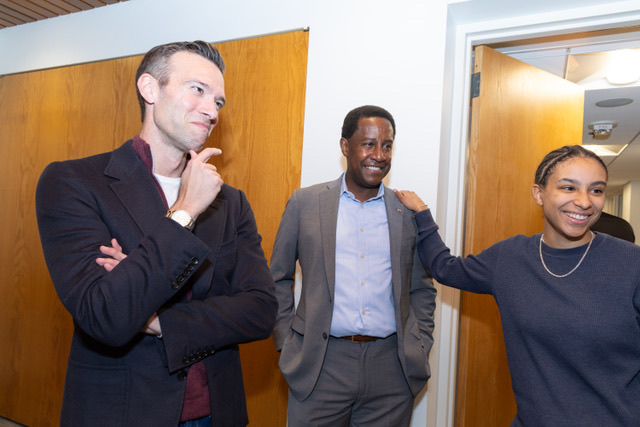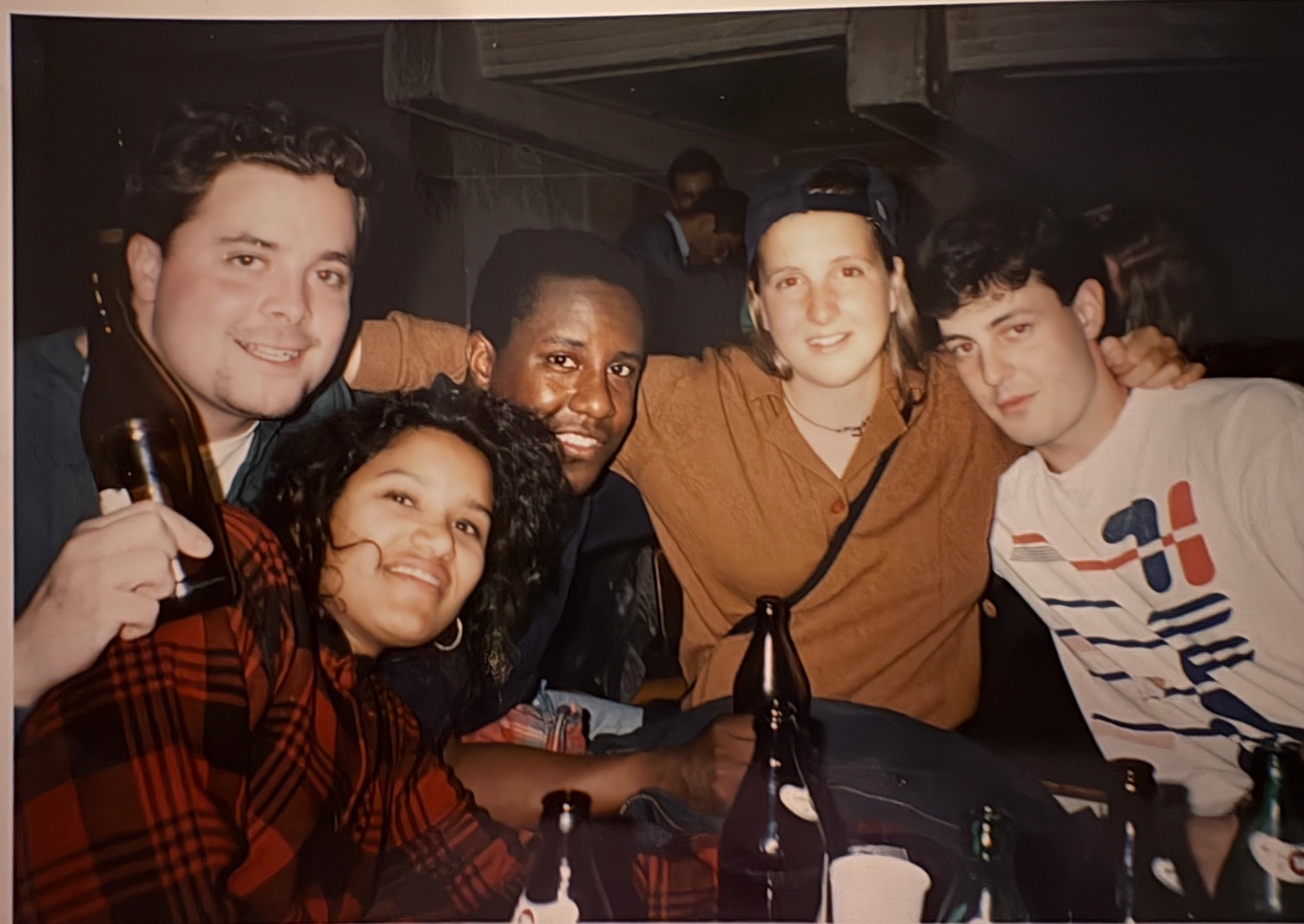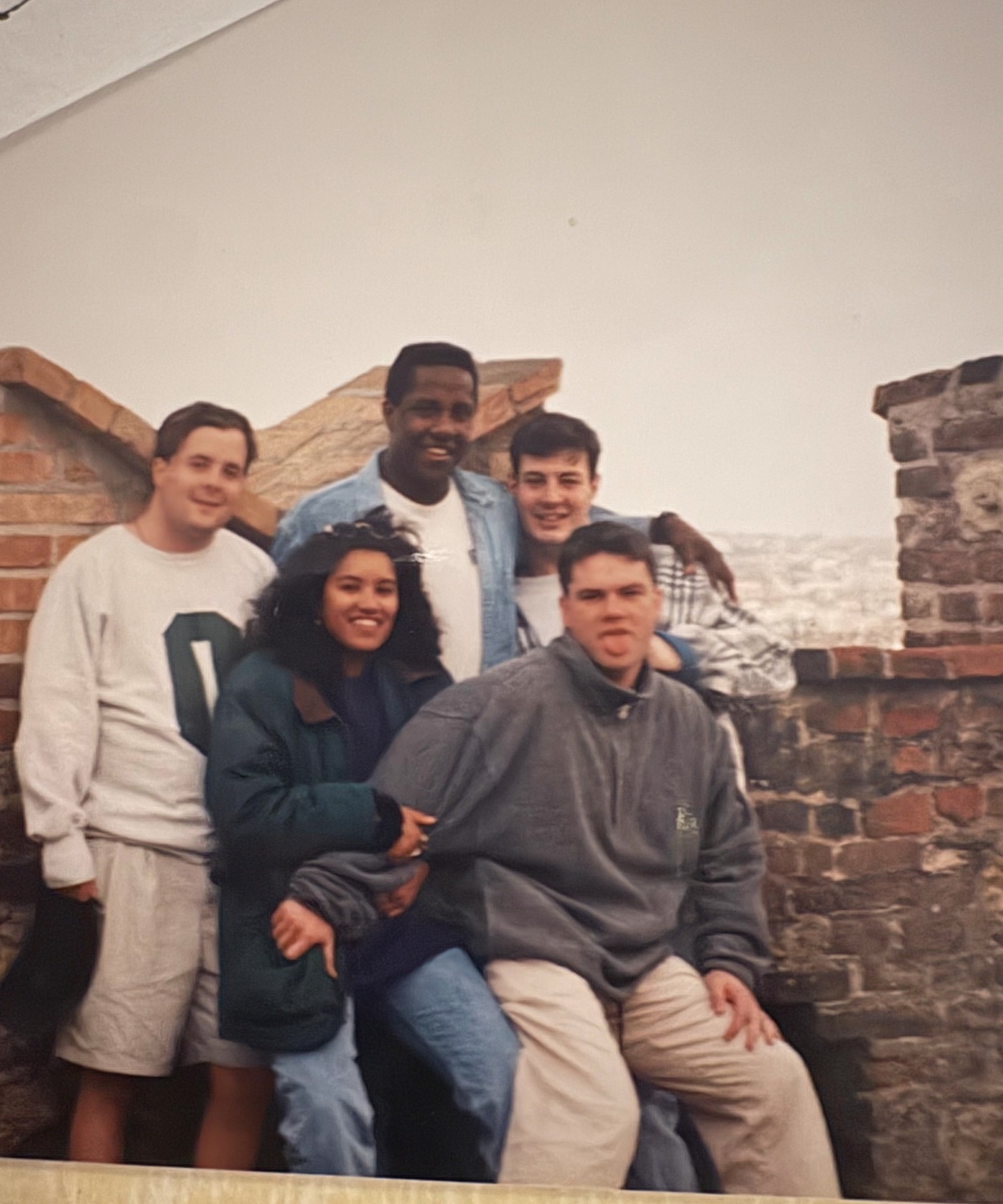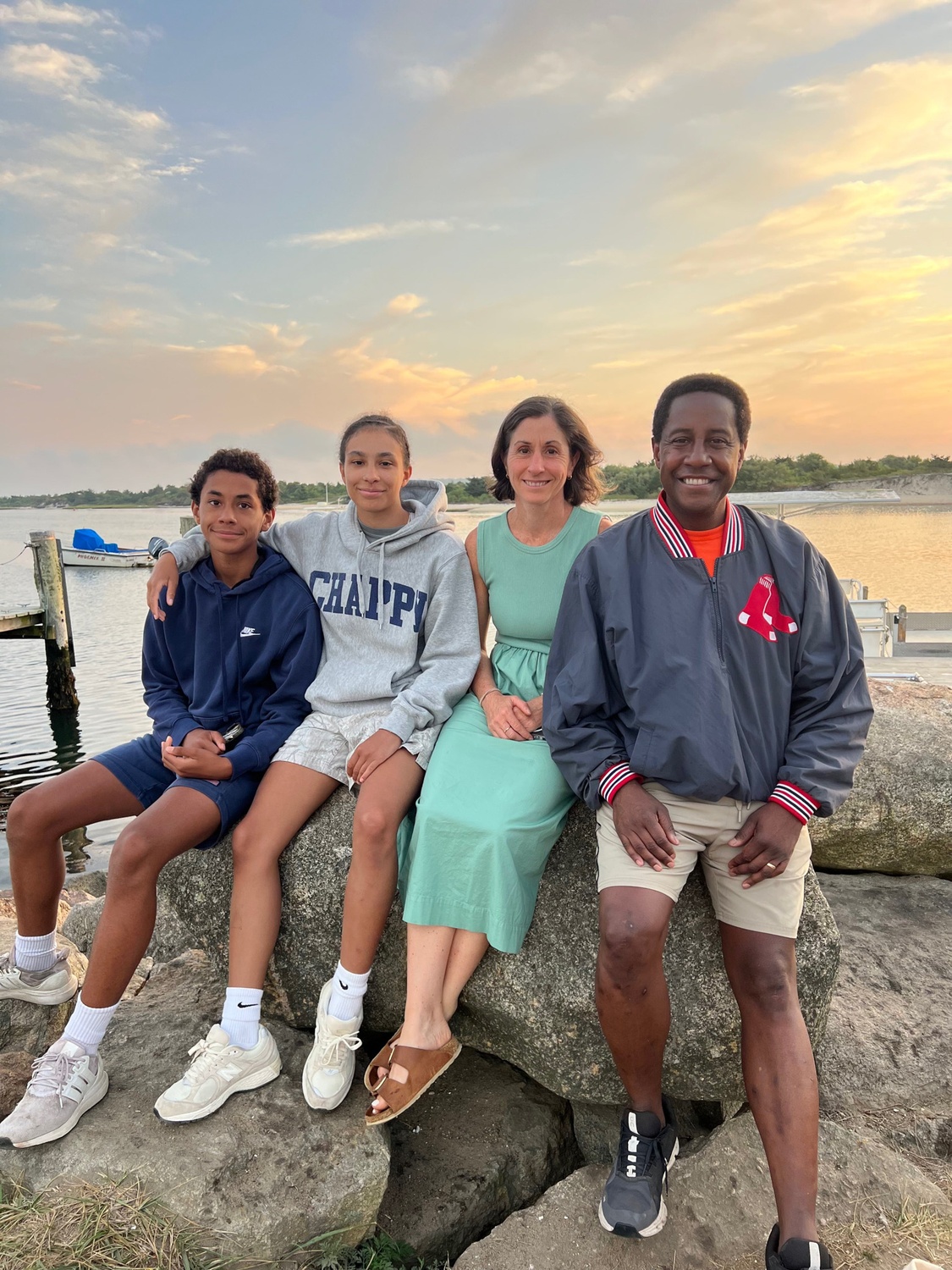‘We Need More Setti Warrens’: IOP Director and Newton Mayor Remembered for Rare Drive to Serve
Remembered as a lifelong public servant who dedicated the end of his career to mentorship at the IOP, Setti D. Warren, 55, died of natural causes on Sunday morning, according to his wife, Tassy Warren.
Updated November 5, 2025, at 3:48 p.m.
Setti D. Warren, the director of Harvard’s Institute of Politics, was used to opening doors.
When he ran as an upstart candidate for undergraduate president at Boston College in 1991, he knocked on every dorm room door on campus, according to his close college friend, Sonia Millsom.
“It was the very beginning of the person that he already was, and he brought that to life in a very accessible way to all of us at Boston College,” Millsom said, adding that Warren later won in a landslide.
More than a decade later, Warren would walk in, uninvited, through the door of Newton Councilor Rick Lipof’s office and declare his candidacy for mayor of Newton, a Boston suburb. With Lipof’s support, he knocked on more than 11,000 doors, according to the New York Times, and won 11,210 votes to become the city’s first Black mayor.
And when he took over as director of the Institute of Politics at the Harvard Kennedy School in 2022, he “really believed in having an open door,” said Tabitha L. Escalante ’23, who served as IOP vice president that year.
Remembered as a lifelong public servant who dedicated the end of his career to mentorship at the IOP, Warren, 55, died of natural causes on Sunday morning, according to his wife, Tassy Warren.
“Setti Warren practiced what he preached,” said David M. Axelrod, a member of the IOP’s Senior Advisory Committee. “He practiced the politics of thoughtfulness and civility and belief that through conversation, we could build something better. And that’s as important as any program that he started there.”
“The tragedy of this is we need more Setti Warrens,” he added.
‘Destined for a Career in Public Service’
Warren was born and raised in the Boston suburb of Newton. Both of his parents grew up poor in New York City but pursued public service careers in Massachusetts — his mother was a social worker, and his father advised Michael Dukakis’ 1988 presidential campaign.
“They worked really hard to give him and his sisters this very different life in Newton. And he just felt like it was his responsibility to pay that forward,” Tassy Warren said. “That was what drove him.”
Warren took that lesson to heart, serving as class president for all four years at Newton North High School and as undergraduate president at Boston College.
William Power, a classmate at BC, said students “gravitated” toward Setti’s personality.
“In hindsight, it’s obviously clear that he was destined for a career in public service or in politics,” Power said. “It’s almost like he knew how to run a campaign that early.”
Richard Culliton, who preceded Warren as student body president, said Warren was quick to involve himself in the BC community.
“From the time that I first met him, he really was remarkable in terms of his charisma and his comfort and talking with people,” Culliton said. “You could tell that he was someone who people saw had leadership potential.”
But Warren wasn’t always all business. He also had a lot of fun, Millsom said. The two of them would go to all the bars and parties in the area, she recalled — and Warren was a natural ringleader.
“Marianne’s and Molly’s were the main places that we hung out those days. I don’t even know if they exist anymore,” Millsom said. “Setti would always be the one dancing on the table, like ‘Come on, come on, get up here. Let’s go.’”
‘A Rocket’
Warren wasted no time in entering national politics. After graduation, he served first in the Clinton administration and then joined Sen. John Kerry’s office as a staffer. For nine years, he was also an intelligence specialist in the Navy Reserve, and did a year of active duty in Iraq from 2007 to 2008.
But Warren couldn’t quite leave Newton behind. He married Tassy Warren in 2006, welcomed a daughter, Abigail, and a son, John, soon after, raising a family in the house he grew up in.
In 2008, he launched a bid for mayor, beating out then-state representative Ruth B. Blaser by just 463 votes to become the first African-American mayor in Massachusetts history.
Lipof, who was an early supporter of Warren and chaired his first campaign, said the election was the “most exciting thing I have ever been involved in.”
“You walk the streets and knock on doors and introduce somebody that nobody has known and you see your friends and your constituents getting excited about him,” Lipof said. “He was a rocket.”
Kerry wrote in a statement that Warren “didn’t push anyone away.”
“Setti never met anyone he didn’t believe shouldn’t be engaged in the messy work of our democracy,” Kerry wrote. “He found common ground the right way, not by trolling or dismissing or trying to put down those who disagreed but through the hard work of citizenship.”
Warren faced an uphill battle once in office, inheriting a city under financial strain from a high school construction project that had ballooned to cost nearly $200 million. But the new mayor, who campaigned on addressing mismanagement and restoring financial stability, made good on that promise.
In 2013, he pushed through an $11.4 million tax override package, hiking property taxes in order to cover school construction costs and other expenses — hiring more teachers, adding police officers, and repairing roads and sidewalks.
Warren’s record on housing — a hot-button issue in Newton, where real estate prices have soared in recent years — was more divisive. At times, the mayor slow-rolled development. He blocked funding in 2013 for Engine 6, a proposed housing project for the homeless in the wealthy Newton neighborhood of Waban.
But Warren was also bullish about taking on the affordability crisis. Late in his tenure, he unveiled a far-reaching housing plan that identified 70 potential development sites and proposed amendments to zoning laws that would allow for accessory apartments in single-family homes.
His successor, Mayor Ruthanne Fuller, called Warren a “role model” who was “always willing to be a phone call away” after passing the baton to her.
“He had strong values, which he brought to the discussion in a very positive way,” Fuller said. “He loved Newton and was trying so hard to make it a better place.”
Even with one foot in Newton, though, Warren aspired to higher office. He briefly entertained a race for U.S. Senate in 2011, but dropped out when now-Sen. Elizabeth Warren emerged as the clear frontrunner.
And toward the tail end of his tenure as mayor, he announced his candidacy for governor of Massachusetts — one of several Democrats hoping to unseat incumbent Charlie Baker. Though Warren was considered to be a top contender, he left the race just a year later, again citing financial woes.
‘A Force Multiplier’
Warren found his final political home at Harvard, first leading the Kennedy School’s Shorenstein Center on Media, Politics, and Public Policy and later moving to the Institute of Politics.
In his three years as director of the IOP, Warren’s calling card was his commitment to ideological diversity and his unflinching defense of discourse across partisan lines. When he assumed the permanent role in 2023, he told The Crimson that his first priority was to “get our students ready to lead politically in this really challenging polarizing environment.”
He echoed the same commitments in October. “We’re always intentional about making sure we have diverse voices,” he told The Crimson. “Since I started as director, it’s been a focus.”
Under Warren, the IOP’s Conservative Coalition launched a mentorship program for conservative students, expanded its conservative internship offerings, and organized an annual gathering in Washington, according to former chair of the Conservative Coalition Michael Oved ’25.
“He didn’t just pay lip service to it,” Oved said. “So many people in today’s society talk about the importance of ideological diversity, but not many do very much to actually change that, to actually bring about that political diversity. But Setti did.”
That staunch commitment to neutrality occasionally pitted him against students. In November 2024, following Donald Trump’s election, then-IOP President Pratyush Mallick ’25 penned an op-ed calling for the IOP to drop its non-partisanship status and refuse to host Republicans who denied the results of the 2020 election.
Warren rebuked Mallick publicly and re-affirmed the institute’s nonpartisanship. But even when they were at odds, Warren taught Mallick how to disagree civilly, he said.
“He was always the guy in the hallway that said, ‘Come, let's hang out and chat’ — about what I wanted to do with life, how I want to pursue public service — even though we may have had public disagreements,” Mallick recalled.
Across the board, students at the IOP remembered Warren for his eager mentorship, saying he expanded the conventional wisdom of who could be an IOP member and a public servant.
Kevin Ballen ’22, who was vice president when Warren first arrived at the IOP, said Warren was “an incredible mentor and a cheerleader” — for individual students and for the IOP as an organization.
Ballen said Warren was eager to engage with ideas from students and could toggle between being a “big picture thinker” and a “super practical problem solver.”
“I just remember those weekly planning conversations with him, and popping into his office at any time, because he was always there,” Ballen said. “And really just talking through any idea big and any problem small.”
Axelrod said empowering students was Warren’s favorite part of the job.
“He understood that he was a force multiplier — that every student who he inculcated with that belief had the ability to go out there and be an engaged citizen and a great leader,” Axelrod said.
“And he thought that was sacred work,” he added.
‘The Best Dad in the World’
Beyond the doors of the IOP, Warren was a faithful Catholic, the “most die hard of all die hard” Boston Celtics and New England Patriots fan, and “the best dad in the world,” Tassy Warren said.
“He was the biggest pushover in the world, and he gave them whatever they wanted,” she said. “Because he just looked at them every day and thought that this was the best thing in the world that he could have done.”
Warren would give tutoring lessons to his daughter and her friends in Advanced Placement U.S. History, his wife recalled, and would cheer “like a lunatic” on the sidelines of his son’s volleyball games — even though he knew nothing about the sport.
“What he would want people to remember most about him was how much he loved his family,” Tassy Warren said. “His family was what he really cared about, and he showed us that every single day.”
Correction: November 5, 2025
A previous version of this article incorrectly stated that Pratyush Mallick ’25 wrote an op-ed calling for the IOP to refuse to host Republicans who denied the results of the 2024 election. In fact, Mallick’s op-ed referred to denial of the 2020 presidential election.
—Staff writer Elise A. Spenner can be reached at elise.spenner@thecrimson.com. Follow her on X at @EliseSpenner.
—Staff writer Tanya J. Vidhun can be reached at tanya.vidhun@thecrimson.com. Follow her on X @tanyavidhun.




